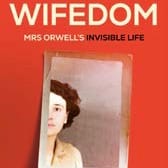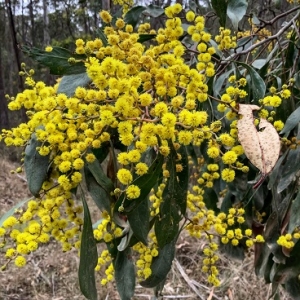Wifedom: Mrs Orwell’s Invisible Life
by Anna Funder
Two new arrivals have filled our TV screens, newspapers and social media during the last month. And both use the word patriarchy a lot! Both have feminist messages. One is the Barbie movie. The other is Anna Funder’s Wifedom, which has had more publicity, both pre- and post-publication, than any other recent book. Funder has been interviewed widely on 7.30, The Drum, Conversations, the SMH and at numerous Writers Festivals.
Wifedom has been reviewed in most major newspapers, both here and overseas. So, what is all the fuss about? Anna Funder trained as an international human rights lawyer and has held fellowships in Berlin and New York. She is the author of Stasiland and All That I Am.
As we are told in the personal memoir part of this book, Funder was working on a deadline, writing a film script for All That I Am, when her highly privileged world started to fall apart. Her architect husband, her three children, a stream of visiting relatives, house repairs, a depressed French exchange student and, finally, the supermarket were dragging her away from her deadline. She felt crushed by ‘the motherload of Wifedom’ and, as anyone would do, turned to the collected works of George Orwell for solace. She then read all six biographies of Orwell, all written by men. And the question came. Where is the wife in this? Where is Eileen O’Shaughnessy?
The answer took her six years to uncover and this book is the result. It is part memoir, part biography, part fictional biography, part cultural critique and part feminist polemic. And raises the old unanswerable question: do we, can we, should we separate the art from the person? Funder does find Eileen. She is brilliant, an Oxford graduate, witty, whimsical and self deprecating. A treasure of newly-discovered letters from Eileen to her best friend and the writings of friends and contemporaries fill out a picture of this woman who clearly played a role in Orwell becoming the writer he was.
She twice saved Orwell’s life in Spain. Orwell writes, in the passive voice ‘… the visas were obtained and we could leave Spain’. He doesn’t mention that Eileen obtained the visas by risking her own life. When and if she is mentioned, it is only as ‘my wife’. She is not named. Eileen was his editor, typist and the main bread winner. During WW2, she worked at the Ministry of Information, writing morale lifting propaganda about which she would tell Orwell. Was this the inspiration for 1984? She studied under Tolkien and loved folklore. She told whimsical stories about the animals she tended on their farm. She and Orwell discussed Animal Farm every night. Did she part write Animal Farm,the novel that made his name and brought money in for the first time?
Orwell was continually sexually unfaithful, often with her friends, leaving her even more isolated. Both contemporaries and biographers say that he ‘pounced’ on women. Is that a euphemism? Why did she stay? Was it because she believed in his work? Eileen died during an operation for uterine cancer aged 39. Orwell was away (unnecessarily?) observing post-war Europe although he knew she was having risky surgery.
Does the book, showing Orwell’s patriarchy and disregard for his wife diminish the work? Each reader will respond differently. His work is wonderful and important. As Funder said in an interview, ‘We can hold the man, the work, the wife and the life, together in our minds at the same time.’


